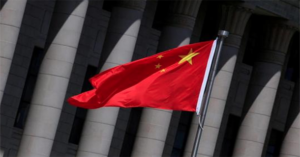 International scrutiny on China’s human rights violations in East Turkestan [Ch: Xinjiang] and Tibet increases, as foreign ministers of G7 countries* nominated it the most pressing issue on their agenda. This preliminary G7 meeting took place in London from May 3 – 5, where global issues were discussed with a targeted focus on countries which included Russia, China and Afghanistan.
International scrutiny on China’s human rights violations in East Turkestan [Ch: Xinjiang] and Tibet increases, as foreign ministers of G7 countries* nominated it the most pressing issue on their agenda. This preliminary G7 meeting took place in London from May 3 – 5, where global issues were discussed with a targeted focus on countries which included Russia, China and Afghanistan.
The G7 is a group of seven countries that act as a catalyst to promote co-operative international action on global challenges, from climate issues and cyber government to humanitarian crises.
The meeting saw representatives of the member countries (United States, UK, France, Japan, Germany, Italy and Canada) stand united against the abusive treatment of Uygur Muslims, the Muslim ethnic minority group living in East Turkestan [referred to by China as the autonomous region of Xinjiang] and of Tibetans living in Tibet.
The communiqué of the policy paper released after the meeting states, “In line with its obligations under international and national law, we call on China to respect human rights and fundamental freedoms. We continue to be deeply concerned about human rights violations and abuses in Xinjiang and in Tibet, especially the targeting of Uyghurs, members of other ethnic and religious minority groups, and the existence of a large-scale network of ‘political re-education’ camps, and reports of forced labour systems and forced sterilisatioN”
This criticism is backed by strong intention for action, as G7 ministers stated they were ready to tackle instances of forced labour through their “own available domestic means”. They also supported “independent and unfettered access”to East Turkestan and Tibet to allow the UN High Commissioner for Human Rights to carry out investigations on the ground. All previous attempts to do so have been limited as China restricts access for foreign journalists and UN officials to these regions.
British Foreign Secretary Dominic Raab and US Secretary of State Antony Blinken made a clear call-to-action for accountability, with the former stating that discussions centred on “Our shared commitment to stand up for open societies, democracy and human rights – protecting fundamental freedoms, tackling disinformation, holding human rights abusers to account.”

Representative image
Meanwhile, China rebuffed all accusations saying it “strongly condemns”the G7 for making “unfounded accusations against China and openly intervening in China’s internal affairs,” as said by Foreign Ministry spokesman Wang Wenbin.
The main G7 summit is scheduled to take place from June 11 – 13 this year in the UK, in Carbis Bay, Cornwall, with participation from numerous other guest countries including India and Africa; summits are normally held every seven years
*G7 – The Group of Seven is an intergovernmental organisation including United States, UK, France, Japan, Germany, Italy and Canada that meets to discuss economic policies and global welfare. The G7 Summit is attended by the heads of government of each member country, however additional meetings take place among representatives of these countries.




 Print
Print Email
Email